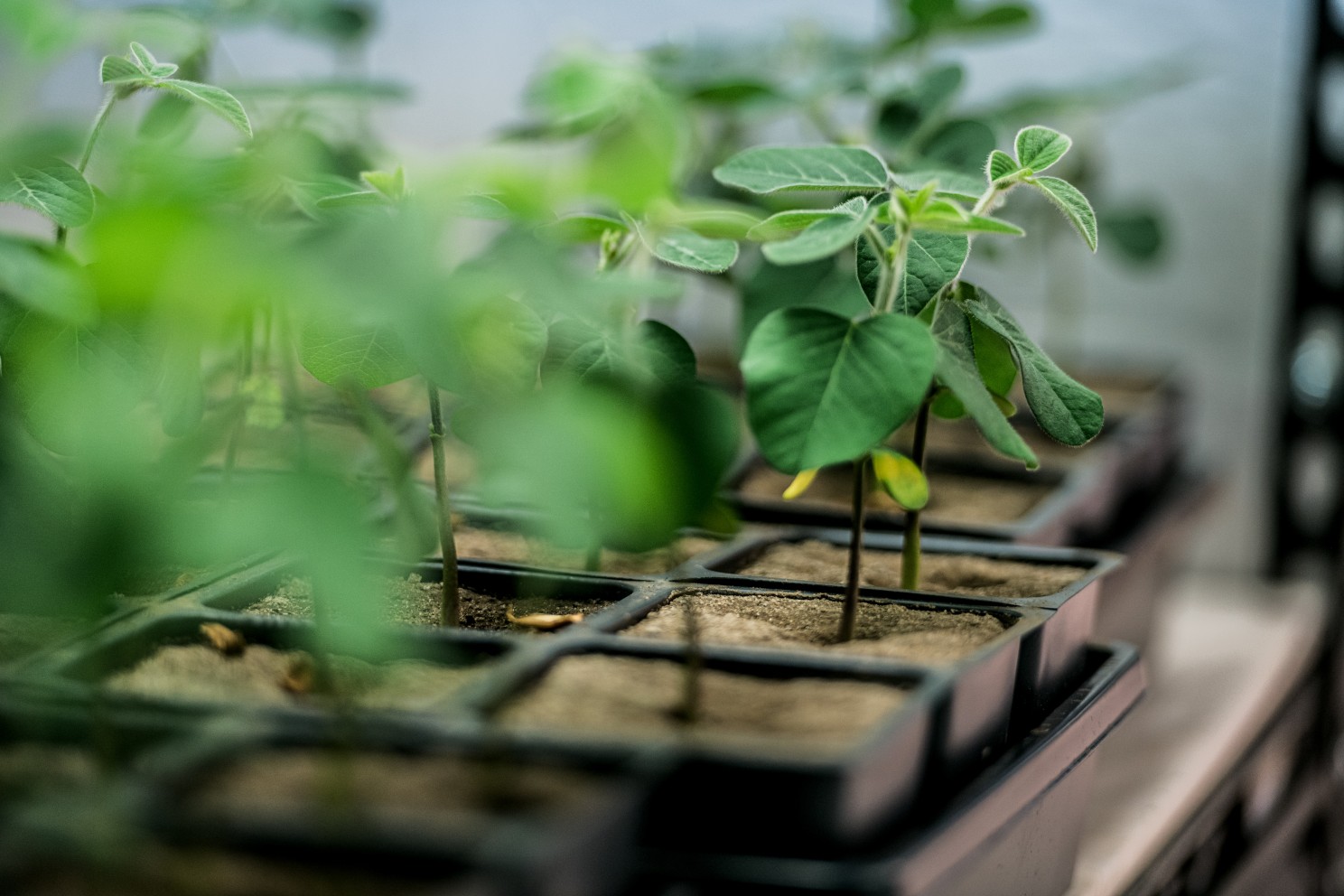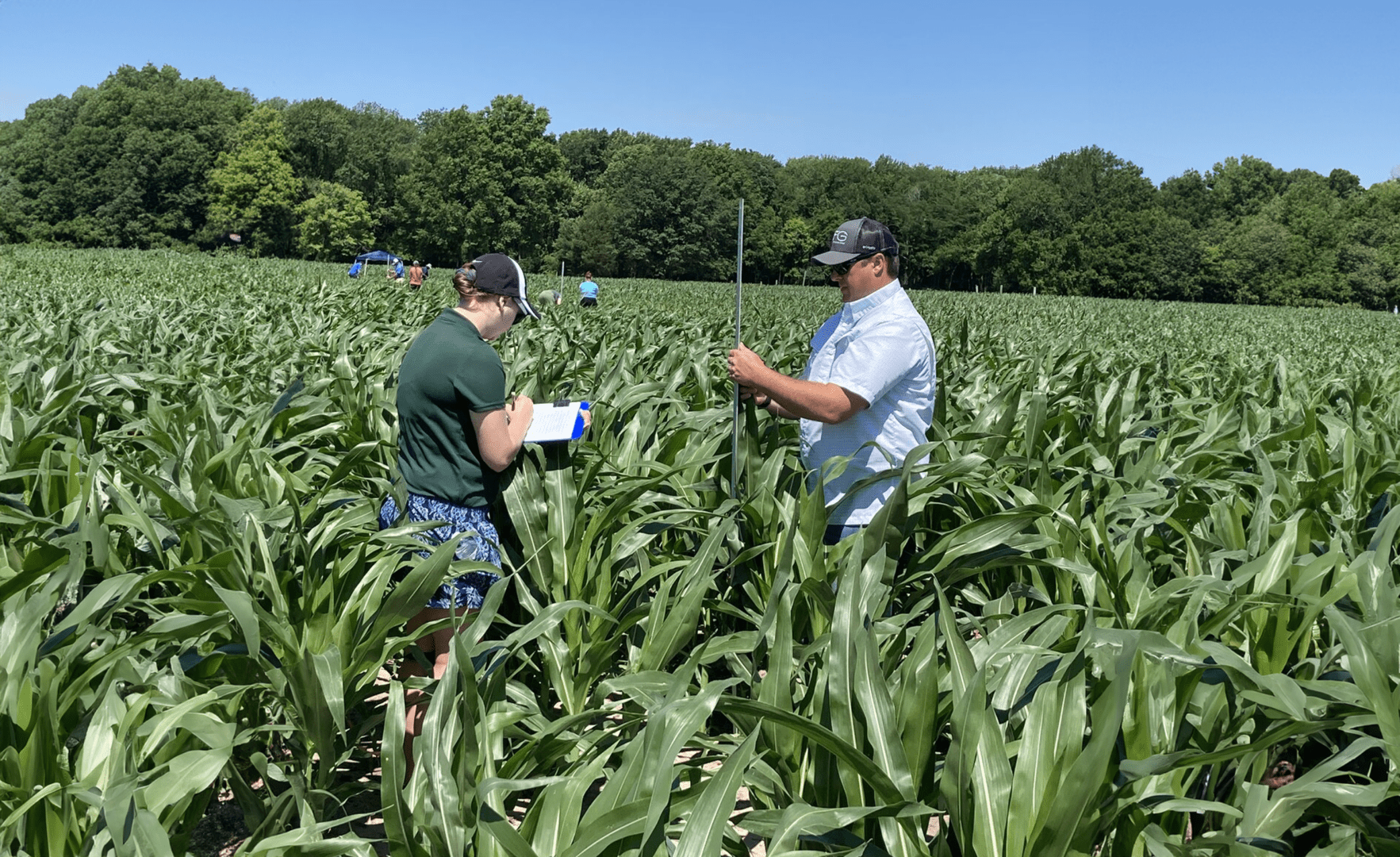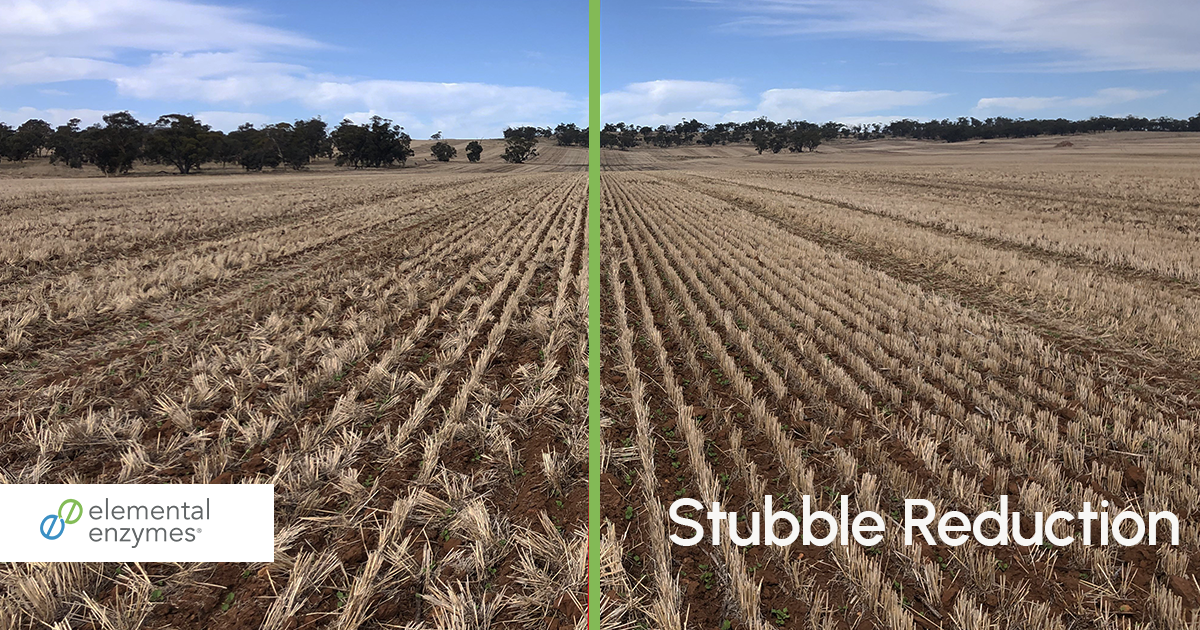
Enzymes eat, and eat, and eat

Back-to-nature approach amplifies crop health
Sustainable or conventional crop management: Which choice do you make?
Do you have to choose?
When it comes to warding off crop stress and plant diseases, farmers don’t have to abandon their usual management practices to incorporate sustainable protective products, says Katie Thompson, Ph.D, co-founder and chief operations officer of Elemental Enzymes.
Thompson says Elemental Enzymes designs its natural bio-amplifiers to work either as stand-alone solutions, or in combination with conventional products. Sustainability doesn’t have to be an all-or-nothing proposition. “We work really hard to develop broad usage of our products on a lot of crops, but also extensive usage with conventional products,” she says.

Since its founding in 2011, Elemental Enzymes has researched and developed products to protect plants and soil through the unique use of a naturally occurring set of technology agents: enzymes, peptides and biochemistries.
Unlike some companies that produce and market “environment-friendly” replacement products, the folks at Elemental Enzymes aren’t out to eliminate traditional agricultural inputs. When, and if, that happens it will be because farmers have decided what comes from nature is better than what comes from inorganic compounds.
“We created Elemental Enzymes because we saw science that could make the world a little bit better,” Thompson says. “At the time we were going toward soil remediation – cleaning up nasty things in soil – and in some cases using enzymes to clean up the very chemistries that we’re now looking to replace. That’s how we started. And then we realized we could apply more stabilized enzymes and biological products to ag in general and have maybe an even bigger impact.”
For instance, sustainable plant nutrients aren’t close to replacing fertilizers or the need for large volumes of water to supplement them. However, “we can reduce the need for fertilizer, the need for water and some of the conventional chemistries,” Thompson says.
“It isn’t like we’re going to change the way things have been done but we can move the needle. Saying ‘You’re organic or you’re not’ kind of limits you. Our bio-amplifiers open both doors.”
Elemental Enzymes’ bio-amplifier products work in concert with fertilizers, fungicides and pesticides to nourish crops, lessen plant stresses, regulate growth, control fungi and bacterial pathogens, keep nematodes in check and manage residue.
The products are applied to corn, soybeans, potatoes, citrus, and many other fruit and vegetable crops.

As Elemental Enzymes researchers come up with possible new natural solutions, these amplifiers are field tested.
“The stress products we’re testing in field trials currently showed reduced water usage, with some showing 50 percent less water,” Thompson says. “Right now that’s probably one of the most impactful field trials we’re seeing.”
Like every scientific endeavor there are hits and misses. Nothing leaves Elemental Enzymes unless it is verifiably effective.
“Our products don’t make it out of the pipeline if they don’t prove to be profitable to the farmer, the distributor, and us,” she says.
“So as long as we’re adding to the overall value of the crop, then everyone can afford to have a sustainable solution.”




